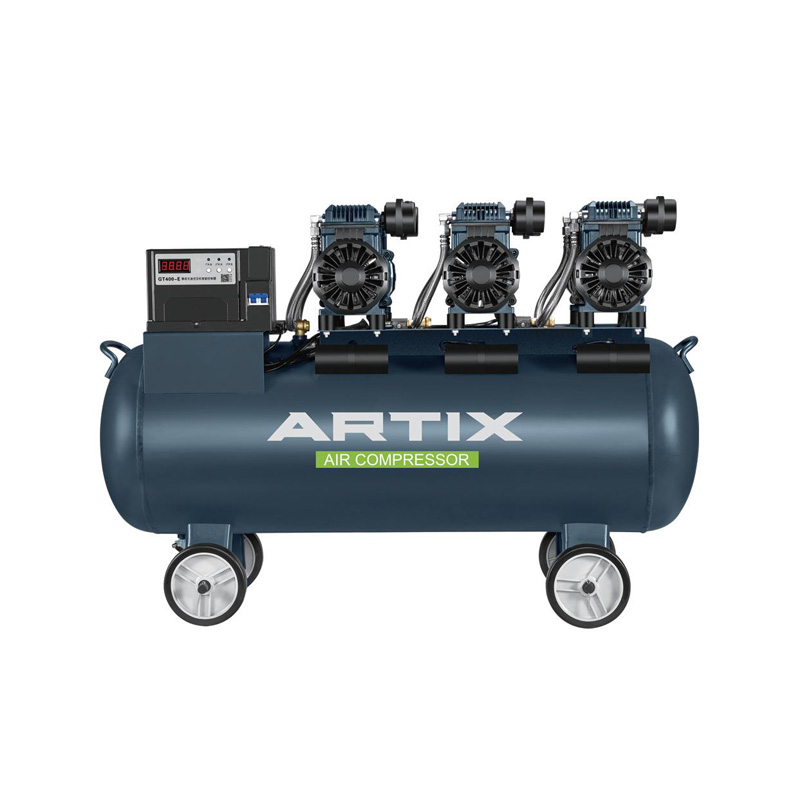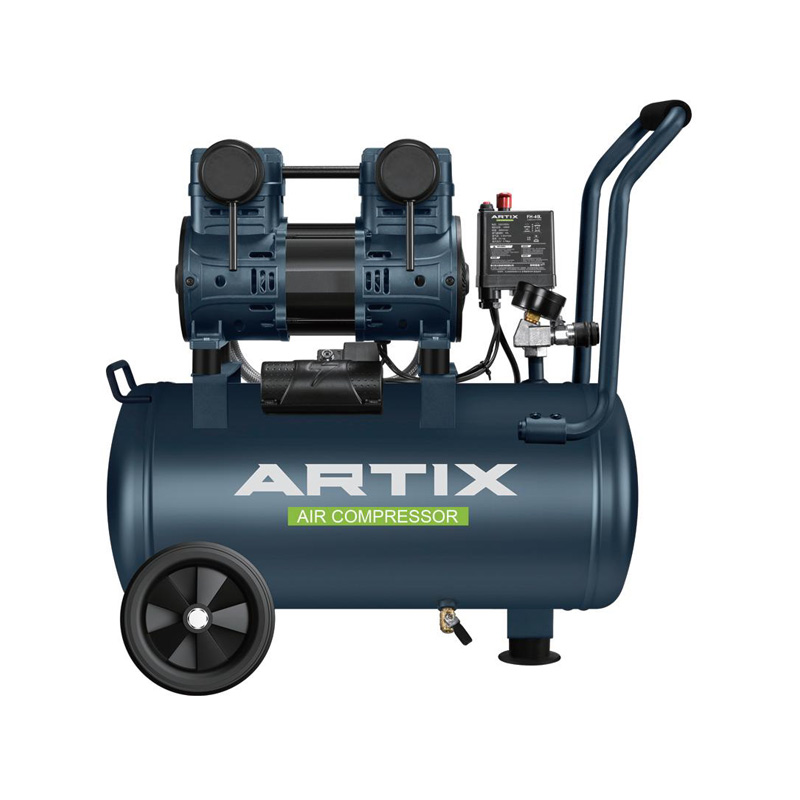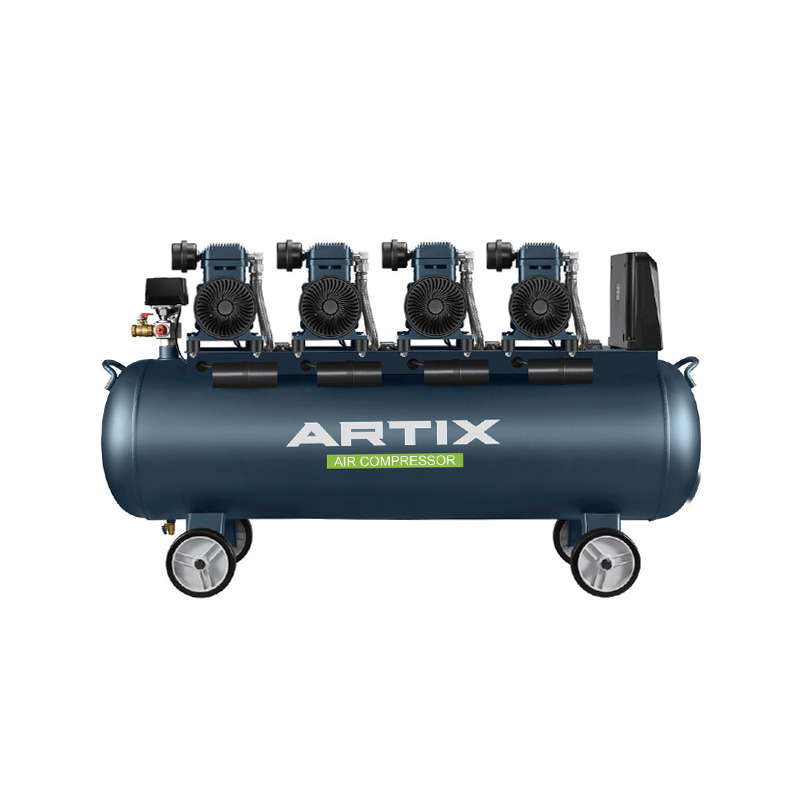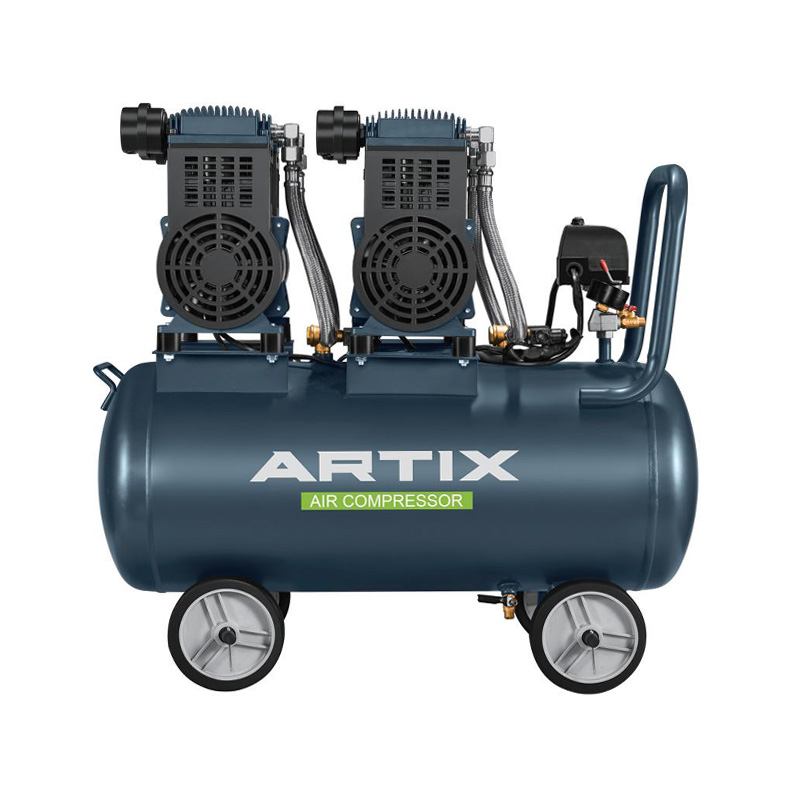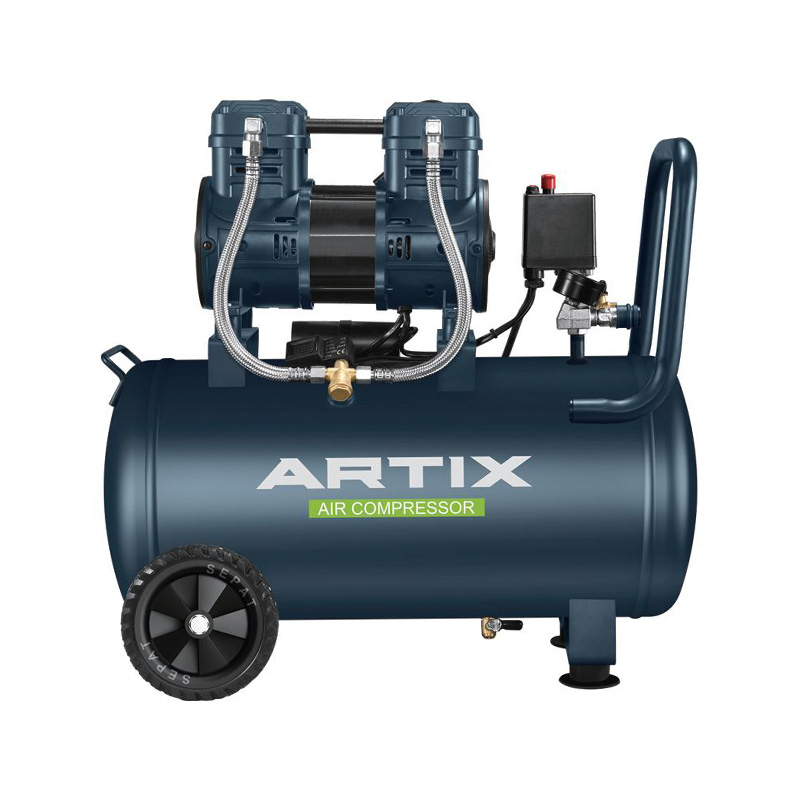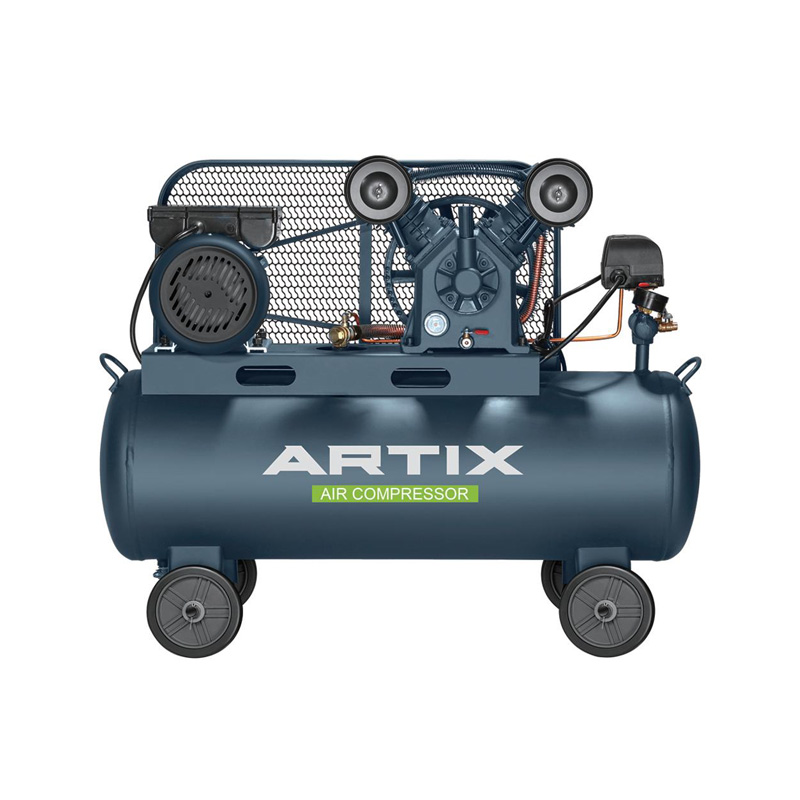In recent years, as environmental concerns have grown, businesses and consumers alike are increasingly considering the ecological footprint of their equipment. Oil-free air compressors, especially models like the portable oil-free air compressor, 2.5 HP 50L belt drive air compressor, and oil free air compressor 2HP, have gained attention for their eco-friendly design. By eliminating the need for oil lubrication, these compressors provide multiple environmental advantages. This article explores the positive environmental impact of oil-free air compressors, from reduced emissions to improved waste management.
Reducing Environmental Emissions
One significant environmental benefit of oil-free air compressors is their contribution to reduced emissions. Traditional oil-lubricated compressors rely on oil to lubricate their moving parts, and over time, these compressors can release small quantities of oil vapor or mist into the air. Such emissions, though minor individually, can accumulate over time, impacting air quality. By contrast, oil-free compressors operate without the need for oil lubrication, which eliminates the risk of oil emissions.
Models like the 2.5 HP 50L belt drive air compressor and the oil free air compressor 2HP are designed to maintain efficiency without needing constant lubrication. The absence of oil reduces the likelihood of volatile organic compounds (VOCs) being released, making these compressors a cleaner alternative in industries where air quality is paramount.
Lower Maintenance and Waste Reduction
Another advantage of oil-free compressors is their small maintenance requirements, which in turn reduce waste. Oil-lubricated compressors require periodic oil changes, which means regularly disposing of used oil. This waste oil can be harmful to the environment if not handled properly, potentially contaminating soil and water sources. Oil-free compressors, however, eliminate the need for oil changes, which greatly reduces the risk of environmental contamination from improper oil disposal.
The portable oil-free air compressor, for instance, is designed for small maintenance, making it suitable for operations where reducing waste is a priority. By eliminating oil changes, users can significantly cut down on hazardous waste, ultimately helping to protect the environment.
Energy Efficiency and Lower Carbon Footprint
Many oil-free air compressors, such as the 2.5 HP 50L belt drive air compressor and other high-performance models, are optimized for energy efficiency. Energy efficiency not only benefits users by reducing electricity bills but also contributes to a lower carbon footprint. Compressors that require less energy to operate consume fewer resources, which indirectly reduces the demand on power plants and decreases the associated carbon emissions.
The design of oil-free compressors often prioritizes energy-saving technologies. For example, the motor and compression system in an oil free air compressor 2HP is often engineered to work efficiently under various conditions without energy-draining lubrication mechanisms. This streamlined design helps lower the energy demand of the compressor, benefiting both the user and the environment.
Water Conservation in Oil-Free Models
Another often overlooked aspect of oil-free air compressors is their potential to conserve water. Oil-lubricated compressors typically need periodic washing and cleaning, which consumes water. In some cases, industries must use specialized cleaning agents to remove oil residues, further impacting the water system. Oil-free models bypass this issue entirely.
A portable oil-free air compressor can be used without generating water waste or requiring water-intensive cleaning methods, contributing to water conservation efforts. This feature is particularly valuable in industries looking to lessen their environmental impact in water-scarce areas.
Noise Pollution and Eco-Friendly Work Environments
The environmental impact of oil-free air compressors extends beyond just air and water quality—they also offer benefits in terms of noise reduction. Although all compressors generate some level of noise, many oil-free models are engineered to be quieter than their oil-lubricated counterparts. For instance, an oil free air compressor 2HP may operate with reduced noise levels due to advanced engineering in its construction.
Reduced noise pollution benefits both the immediate work environment and the surrounding community. It helps create a more eco-friendly workplace by less noise-related stress on workers and wildlife near industrial areas.
Supporting Sustainable Industry Practices
Using oil-free air compressors supports more sustainable practices in a range of industries. Portable oil-free air compressors and 2.5 HP 50L belt drive air compressors have become popular in industries such as food processing, electronics, and healthcare, where oil contamination can compromise product quality and safety. By switching to oil-free compressors, these industries not only protect the environment but also ensure compliance with health and safety standards.
Sustainable practices are increasingly important as businesses seek to align with global environmental goals, such as reducing greenhouse gas emissions and less ecological impacts. Oil-free air compressors, with their reduced emissions, waste, and energy use, are a valuable tool for companies looking to make responsible environmental choices.
The Future of Oil-Free Air Compressors in Eco-Friendly Manufacturing
As environmental standards tighten and consumers become more eco-conscious, the demand for oil-free air compressors is likely to grow. Portable oil-free air compressors and models like the 2.5 HP 50L belt drive air compressor are evolving to meet these demands, incorporating features that further reduce environmental impact. Innovations in compressor technology, such as advanced coatings and self-lubricating materials, will continue to enhance the performance of oil-free systems, making them even more sustainable.
Ultimately, oil-free air compressors represent an eco-friendly alternative that supports sustainable manufacturing practices. By reducing emissions, eliminating hazardous waste, and conserving energy, these compressors make a positive environmental impact while providing reliable performance across a range of applications. For industries and consumers alike, transitioning to oil-free compressors can be a step toward a more sustainable future.
